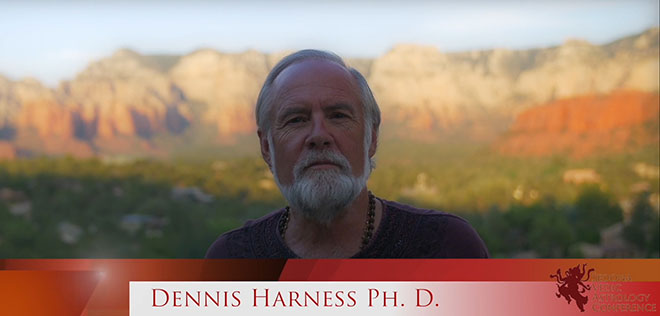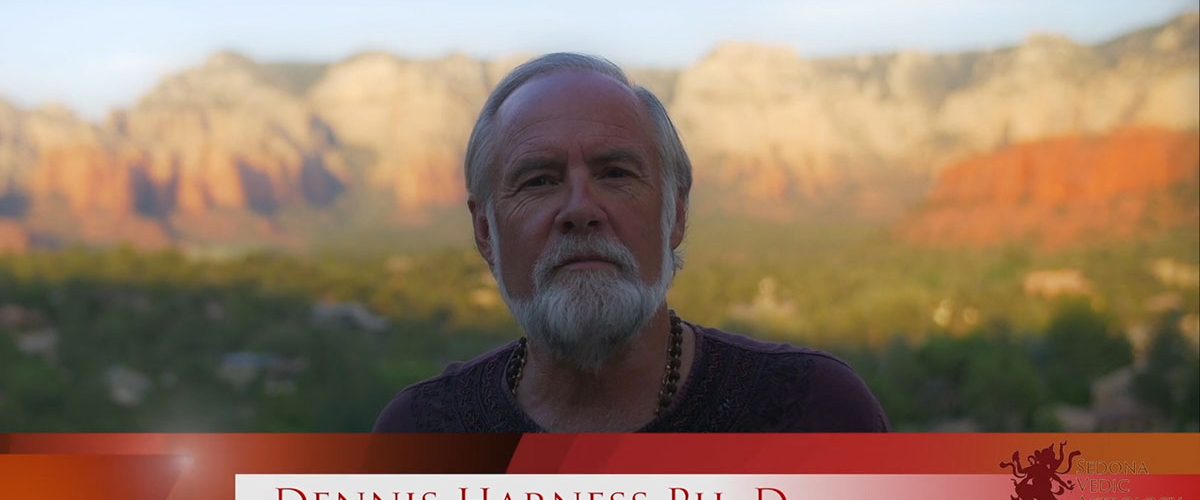
Episode 168 features an interview with Vedic astrologer Dennis Harness where we talk about different styles of conducting astrological consultations, and some potential challenges that new astrologers should watch out for when seeing clients.
We begin by talking about different styles that astrologers use in order to conduct natal consultations, which can range from informational presentations of the delineation to more of a conversational style.
We also talk about some potential pitfalls that consulting astrologers should watch out for, which includes the need to be mindful of elements of their own shadow.
At one point we focus on a list of six challenging client styles that Dennis has identified through his years of practice, which can occasionally be problematic when astrologers run into them during the course of doing consultations.
The discussion is based on an article on Dennis’ website titled Vedic Astrology and Transpersonal Counseling.
Dennis is organizing a conference on Vedic astrology in Sedona later this year (Nov. 30 – Dec 3. 2018), which you can find out more information about here:
Sedona Vedic Astrology Conference
This episode is available in both an audio and a video version, and you can find links to both below right after the show notes.
Show Notes
Here is an outline of some of the points covered in this episode:
- Introducing Dennis and talking about his background in astrology and counseling.
- Issues practicing Vedic astrology in a modern western context.
- Popularization of Vedic astrology in the west in 80s and 90s.
- More predictive form of astrology, different cultural norms.
- Debates about ethics and counseling in the west during this process.
- Power of prediction versus therapeutic and counseling concerns.
- Just because you can say something doesn’t mean you should.
- Different ways of conducting and astrological consultation.
- Informational style
- Counseling style
- Psychotherapeutic style
- If someone was just starting to do consultations now, what advice would you give?
- Six challenging client styles astrologers sometimes run into:
- The Professional
- Sees diviners frequently, wants them to make decisions for them.
- The Skeptic / Confounder
- Does not believe astrology is legitimate
- Wants to stump or confound the astrologer.
- May deny accuracy of interpretation even if correct.
- Often happens when consultation is given as a gift.
- The Agreeable Client
- Over-idealizes the astrologer as infallible, or god-like.
- Potential to swing to opposite extreme.
- The Confessional
- Confesses misdeeds to seek absolution or approval.
- Rescue Me
- Expects the astrologer to magically make everything better/perfect.
- The Victim
- Believes negative aspects in chart mean they are being punished.
- Need help turning life around by becoming more active participant.
- The Professional
- The astrologer’s shadow
- Narcissism and grandiosity
- Need to acknowledge the limitations of astrology, and astrologers are fallible.
- Awareness of one’s own philosophical and religious assumptions.
- How those may or may not agree with the client’s beliefs.
- Importance of emphasizing self-determination.
- Should astrologers get some training in counseling or consulting skills?
- How should newer astrologers start seeing clients?
- How do you know when you are ready to start seeing clients?
- Older versus younger clients, things that are more or less challenging.
- Book learning has its limits, eventually must learn by doing consultations.
Watch the Video Version of This Episode of the Podcast
Here is the video version of this episode on YouTube:
–
Transcript
A full transcript of this episode is available: Episode 168 transcript
Listen to the Audio Version of This Episode
You can either play this episode of the podcast directly from the website or download it as an MP3 to your computer by using the buttons below:
Podcast: Play in new window | Download (Duration: 1:29:44 — 41.4MB)


Most interesting – I think ALL of this needed to be said and was most helpful to hear. Years ago, as stated, many of the popular and best astrology books out there were authored by psychotherapists. That was fine with me since I was very interested in Jungian psychology and many of these authors were Jungian. I had had two readings in my early twenties – one from evolutionary astrologer, Jeff Green and one from a psychologist who was a follower of Jung. Green’s reading was very off the cuff and oriented toward Pluto, which in the 12th in my chart was not revealing much. The 2nd reading, by the counselor, was a catapult into regular counseling during my 1st Saturn return that was invaluable. Astrology is such a fabulous tool for a psychologist because it gets right to the point (along with the inevitable dreams that start to reveal the story). However, many counselors without a formal degree as astrologers are not qualified to “go there” in my opinion. This to me is why Liz Greene’s work and others in that camp was fascinating – she was qualified to do a type of interpretation most astrologers are not. This was a great interview. Thanks to both of you. And thanks to the chart reader who is just showing the weather report too. ( I put myself in that camp).
At the bit about different kinds of clients I was going yes! Oh yes! As I recognised them all. Though unlike the speaker I rather enjoy the challenge thrown out by the client who just wants a cold reading and offers no background info. It’s good practice for “pure astrology” and to see how much do I trust my navigational instruments.
As a certified life coach and budding professional astrologer, I’d like to suggest that astrologers who don’t have a counseling, social work, or psychology background consider taking serious life coach training in order to gain consulting skills. Coaching is not a form of therapy, but a way to help people mindfully assess their current lives and focus (or re-focus, as the case may be) on the road ahead. Coaching makes use of lessons learned in the past without focusing extensively on the past (which is more the territory of therapy). Most importantly, serious coach training — that is, a program that takes nine months or more of dedicated, mentored practice as well as class learning (online or in person) — trains people in knowing how to recognize a client who needs counseling, therapy, or even medical help, and how to gracefully refer a client appropriately. Based on the ancient Socratic method of careful questioning and active listening rather than advice-giving, coaching has proven to be an excellent adjunct for the practice of astrology, tarot, and other systems of gaining personal insight and/or reading the astrological weather, so to speak. For a list of good coaching programs, consult the International Coach Federation’s (ICF’s) website. (I’m a member of the ICF but am otherwise unaffiliated with it. The ICF website has more info on coaching, as well as a list of well-vetted and ICF-approved training programs and contact info.)
One comment about young-vs.-old astrologers: really, with the “energy” euphemism? There are any number of astrologers of widely ranging ages who are eager students of new approaches. Many, who bring their life experience to their interest in new — or new/old — perspectives, are happily acquiring skills in Hellenistic, Vedic, and other areas that teachers of all ages are bringing forward. As well, there are plenty of astrologers across the chronological age spectrum who learn one method of chart analysis and stay in that silo, preferring the familiar (often, sticking to only one teacher or school of thought) over trying something new. Not that there’s anything wrong with that, if it works…. I like what the Association of Young Astrologers statement says: “young” astrologers can be of any chronological age. I’d add: “old” astrologers can be of any chronological age, too. It’s attitude, not physical age, that matters.